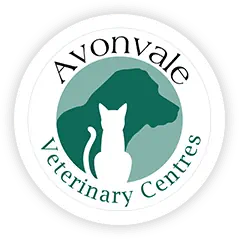
Do you know what to do if you find an injured, wild animal while you’re out and about this summer? Often doing nothing is the right thing but sometimes our help is needed. Wild animals are unpredictable when they’re handled by humans; more so if they’re frightened and injured. Before you decide to help a wild animal, take a second to make sure you’re doing so as safely as possible.
Baby mammals are sometimes mistakenly taken from their families by well-meaning helpers. Check to see if a baby animal is actually an orphan before intervening – often parents hide just out of sight, ready to return as soon as the human danger is gone. Unless the animal is clearly injured or unwell, it’s best to call the RSPCA or your nearest wildlife rehabilitation centre before acting.
Signs that your help is needed
You probably need to help if the animal:
- Is brought to you by your cat or dog.
- Has an obvious bleeding wound.
- Has an apparent or obvious broken limb.
Top tips to remember
If you find an injured, orphaned, or trapped animal, approach quietly and carefully; remember to consider your own safety first. You can help a wild animal have the best possible chance of survival by following these guidelines:
- Gently place injured animal in a cardboard box. Pet carriers, lined with a non-frayed towel, are ideal to carry small mammals. Place the containers somewhere quiet until they can be transported to either a wildlife rehabilitation centre or the vets.
- Always check long grass for rabbit nests before mowing. Keep an eye out for hedgehog nests too; they’re found at the base of thick hedges, garden sheds or piles of rubbish.
- If you’re transporting an injured animal in your car, turn the radio off and talk quietly. Wild animals aren’t accustomed to human voices and get frightened by loud noises. The calmer a wild animal is, the better its chance of survival.
- Wear gloves if possible – gardening gloves are ideal if you have them. Wash your hands thoroughly after handling any animal.
- Try to avoid handling injured bats as there’s a very small risk they could transmit rabies. If you need to move a bat, wear thick gloves or use a shoe box to gently scoop the bat up. Place the bat in the shoe box (with air holes in the side) lined with a small cloth. Put a few drops of water in an upturned milk container lid in a corner of the box. Bats are a protected species but it’s OK to move a bat if it’s injured and needs help. The National Bat Helpline will advise you where to take the bat as they have volunteers who can rehabilitate them properly.
- Neverlift a wild animal unless you’re sure that you can do so without risk to yourself or others.
- Please contact us if you’re uncertain about what to do. If you find an injured animal, please call the RSPCA, or speak to us, before you move it. We always help injured wildlife but there may be a rehabiltation centre we can contact for you that provide specific care.
For more details on handling injured wildlife, please visit https://www.rspca.org.uk/adviceandwelfare/wildlife/injuredanimals






